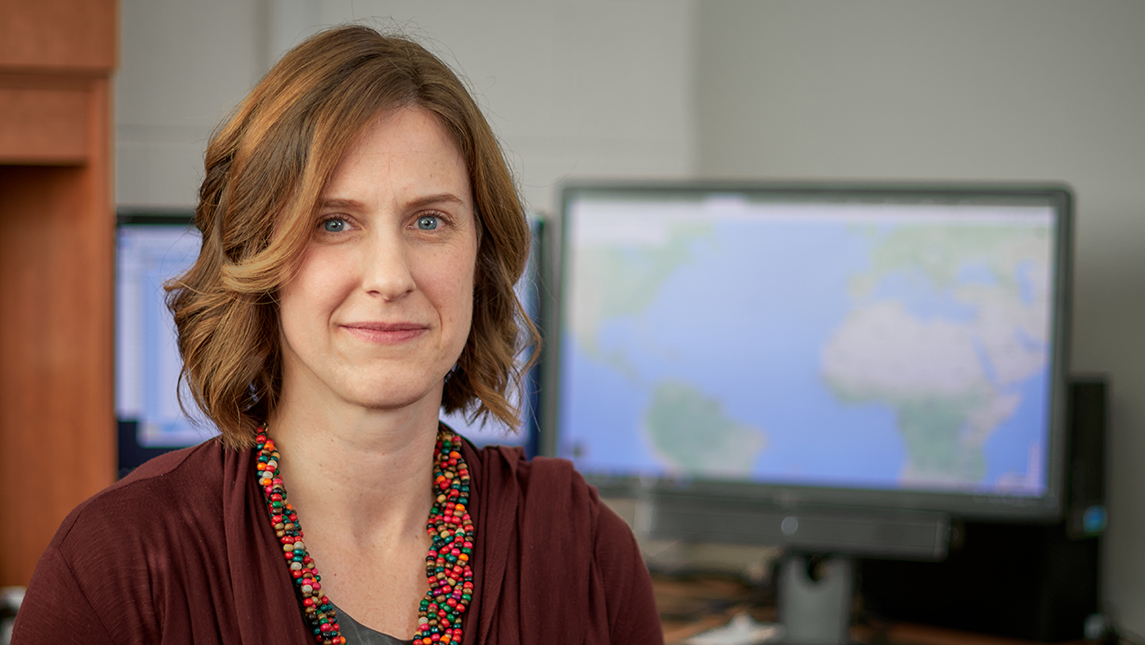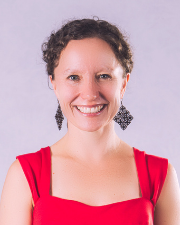
World AIDS Day, observed on December 1st of every year since 1988, is an international day dedicated to raising awareness of the AIDS pandemic caused by the spread of HIV infection and mourning those who have died of the disease.
Two professors from UNC Greensboro’s Dept. of Public Health Education have expertise in sexual health with an emphasis on HIV prevention. Read about their research and recent projects:
Dr. Jennifer Toller Erausquin
Erausquin is a social epidemiologist whose research examines gender, race/ethnicity, and socioeconomic factors as determinants of sexual and reproductive health, with an emphasis on HIV prevention and care engagement. She is a quantitative researcher with expertise in sampling hard-to-reach populations and analyzing large survey data sets, and a substantive expert in structural approaches to understand and eliminate health inequities.
Since 2019, Erausquin has served as a consultant to the World Health Organization (WHO). In January of 2020, she was one of 18 experts selected by WHO to travel to Nairobi, Kenya to attend a “hackathon” at the African Population Research Health Center. A hackathon is a sprint-like event bringing together diverse experts around a common issue or objective. This hackathon involved synthesizing and harmonizing a comprehensive survey instrument on sexual and reproductive health, to be used as a publicly available set of questions that any ministry of health, nonprofit organization, or other nongovernmental organization could use for program evaluation and surveillance type of measuring.
Once the survey instrument is publicly available and widely used, the WHO and researchers will be able to look at differences across countries and contexts over time.
“I think in general, sexual health survey data is often really difficult to compare across studies and between countries because the survey instruments are really different,” said Erausquin. “It is important to have a unified set of measures that will allow for those comparisons. This survey instrument has the potential to provide information on what current sexual practices and current reproductive and sexual health needs are, and ultimately fulfill those needs.”
For this work, Erausquin will receive recognition from the HRP, the UNDP/UNFPA/UNICEF/WHO/World Bank Special Programme of Research, Development, and Research Training in Human Reproduction, which is the main instrument within the United Nations system for research in human reproduction.
“I’m very proud of this work, and I’m excited to see the survey instrument get used. A consortium of over 25 countries is now discussing whether the instrument can be part of a rapid, web-based survey of sexual and reproductive health in the context of COVID-19. My work with this team has encouraged me to dig in my heels on my research in sexual health. There are broader implications for the work that I do, and I look forward to sharing that to improve the field of sexual and reproductive health.”
Read more at news.uncg.edu.
Dr. Amanda Tanner

Tanner is a public health scientist with expertise in HIV prevention and care among vulnerable and marginalized populations, including adolescents, young adults, Latinx communities, and gender and sexual minorities. Her work has been published in several leading journals including the American Journal of Public Health, the Journal of Adolescent Health, and AIDS Care. Tanner is currently the principal investigator on two National Institute of Health (NIH grants) – an R01 (National Institute of Nursing Research/NINR) focused on increasing connection to prevention and care services for sexual minority individuals living in Appalachia and an R34 (National Institute of Mental Health/NIMH) to develop and pilot a mobile website to support the transition from pediatric/adolescent- to adult-oriented HIV care.
Adolescents and young adults are disproportionately impacted by HIV in the United States. Youth living with HIV face extraordinary barriers to care, especially when it comes time to transition from their pediatric clinic to an adult clinic. Of the approximately 40% of young adults that make it to an adult clinic, nearly half will drop out of their care program within two years. In addition to this transition from pediatric to adult care, these adolescents have to navigate a system that does not always integrate well with their everyday lives. In a world where communication, career development, banking, and entertainment all have gone mobile, healthcare often fails to reach youth where they are.
Tanner, along with colleagues from Emory University and the Children’s Hospital of Philadelphia, have collaborated on solving this problem by developing a digital intervention to support young adults with HIV in their care transition from pediatric to adult care.
The iTransition project features youth-facing components, such as content about medications, how you identify an adult provider, how you get to an adult clinic, and what things will look different between pediatric and adult care. iTransition also features advice from youth who have recently undergone the transition process to adult care, so that participants can address any concerns after developing a relationship with the adolescent side.
“I hear from young people frequently that they feel like when they go to a new adult provider after being with a youth provider for a very long time, that they have to tell their whole story all over again. They don’t often want to do that. They also feel like people only want to know specific things about them related to HIV, even though living with HIV is just one piece of who they are. We created a multi-level approach in trying to support these youth, and not just put all the responsibility on them.”
Read more at pattern.health.
Photography by Martin W. Kane, University Communications


